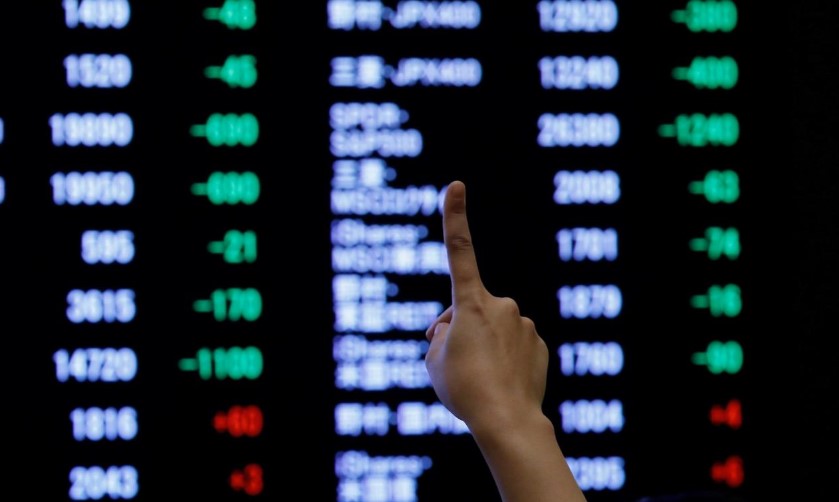
Asian shares drifted lower on Wednesday as a risk-off mood settled on markets, while a frazzled pound awaited its fate ahead of yet another make-or-break parliamentary vote on Brexit.
MSCI’s broadest index of Asia-Pacific shares outside Japan .MIAPJ0000PUS eased 0.45 percent in slow trade.
Japan’s Nikkei .N225 led the retreat with a fall of 1.2 percent as data showed domestic machinery orders fell in January at the fastest pace in four months.
Shanghai blue chips .CSI300 slipped 0.5 percent following two days of gains. E-Mini futures for the S&P 500 ESc1 were off 0.2 percent and spread betters pointed to opening losses for the main European bourses.
Risk appetites had soured after British lawmakers crushed Prime Minister Theresa May’s European Union divorce deal, forcing parliament to decide within days whether to back a no-deal Brexit or seek a last-minute delay.
Lawmakers voted against May’s amended Brexit deal by 391 to 242 as her last-minute talks with EU chiefs on Monday to assuage her critics’ concerns ultimately proved fruitless.
Parliament will vote later Wednesday on whether to leave the EU with no deal, and if that fails, a further vote on Thursday will decide whether to extend the Brexit deadline.
“The vote today seems certain to go against the government as well,” said David de Garis, a director of economics and market at National Australia Bank.
“Assuming the Thursday vote finds a majority in favor of an extension – as we expect – it will likely be of some comfort to sterling,” he added. “It’s still a fast moving environment, with political pressure at understandably extreme levels.”
The pound could do with some comfort after a wild couple of sessions. It was last at $1.3089 GBP=, having been as high as $1.3296 and as low as $1.3017 so far this week.
U.S. INFLATION SLOWS
On Wall Street, Boeing Co (BA.N) shed another 6.1 percent for its biggest two-day drop since June 2009, as more countries grounded the company’s 737 MAX 8 planes following Sunday’s crash in Ethiopia, the second fatal crash in months.
The drop in Boeing pushed the Dow .DJI down 0.38 percent, even as the S&P 500 .SPX gained 0.30 percent and the Nasdaq .IXIC added 0.44 percent. [.N]
A soft U.S. inflation report for February burnished bonds while tarnishing the dollar. Annual consumer price inflation slowed to its lowest since September 2016 at 1.5 percent.
The data merely reinforced expectations the Federal Reserve will stay patient on rates and could even sound more dovish at its policy meeting next week.
Yields on U.S. 10-year notes US10YT=RR duly declined to a 10-week low at 2.596 percent, while the dollar idled at 97.000 .DXY against a basket of currencies.
The dollar drifted off to 111.28 JPY=, while the euro marked time at $1.1287 EUR= having bounced from last week’s 20-month trough of $1.1174. [USD/]
In commodity markets, the dip in the dollar helped gold reach its highest in two weeks and it was last fetching $1,305.09 per ounce XAU=.
Oil prices edged up on tightening global supply after a Saudi official said the kingdom plans to cut oil exports in April, while the U.S. government reduced its forecast for domestic crude output growth. [O/R]
U.S. crude CLc1 firmed 30 cents to $57.17 a barrel, while Brent crude LCOc1 futures added 21 cents to $66.88.
























